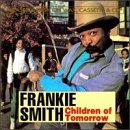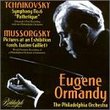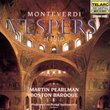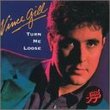| All Artists: Frankie Smith Title: Children of Tomorrow Members Wishing: 0 Total Copies: 0 Label: Hot Productions Original Release Date: 5/17/1994 Re-Release Date: 4/15/1994 Genres: Dance & Electronic, Pop, Rap & Hip-Hop, R&B Styles: Dance Pop, Pop Rap, Soul Number of Discs: 1 SwapaCD Credits: 1 UPC: 053993662427 |
Search - Frankie Smith :: Children of Tomorrow
 | Frankie Smith Children of Tomorrow Genres: Dance & Electronic, Pop, Rap & Hip-Hop, R&B
|
Larger Image |
CD DetailsSimilar CDs |
CD ReviewsShort on ideas, are we? Dave | United States | 02/11/2005 (2 out of 5 stars) "On "Slang Thang", Frankie Smith tells us how to talk slang by slipping in the nonsense syllable "izz", something that strikingly brings to mind '90s and 2000s rappers such as Snoop Doggy Dogg and Jay-Z. There's no need for a parental advisory sticker though for Frankie Smith's "Children of Tomorrow" album--quite frankly, it's more like the total opposite. Frankie Smith received major commercial success in 1980/ 1981 with the dance/ rap tune "Double Dutch Bus"--it was released in 12" and 7" single versions, EACH of which went gold, for a combined total of at least 2 million copies moved. The song's birth is really interesting. Using spare session time, the late drummer "Fat" Larry James, who was working with Smith, layed down a drum part that Smith and his writing and producing parter Bill Bloom worked with to develop the track. Smith then recorded a cuss-laden rap about not being hired for a job he attempted to get as a bus driver. It was decided to make the song cuss-free, so Smith re-recorded the vocal. The song ended up being not just cuss-free, but practically a full-blown kid's song--they slip in a snippet of the melody from "Ring Around the Rosie", and Smith had kids from the neighborhood add vocals to the track, plus it's got a bunch of pig-Latin style stuff going on which was also something of a craze with kids at the time. The rest of the album was clearly slapped together, attempting to cash in on "Double Dutch Bus", and the result is an album that's so thin and slight, it's beyond all belief. In general, the grooves are bare-bones, underdeveloped, and ultra-repetitive--in other words, merely a vehicle for Smith's cartoonishness. Add to this that the lyrics typically lean towards just plain dumb as opposed to amusingly dumb, plus Smith's froggy vocal schtick on track after track, and the overall effect is like beating a dead horse. Admittedly, Frankie's rap on "Double Dutch Bus" is catchy and fun, and the groove is nice, even if it is extremely minimal. Just in case you can't get enough, we also get the 'continuations' "Double Dutch" and the 8+ minute "Triple Dutch". There is one solidly grooving tune that's NOT a "Double Dutch Bus" rehash, the aforementioned "Slang Thang"--Smith's totally over-the-top slang-packed vocals that arrive at 3:25 of the track are hilarious at first, but the way they beat this schtick into the ground, chanted group vocals included, it's simply overkill. Although there is the occasional suggestive lyric, the lyrics are mostly aimed at a fifth-grade level mentality such as "Teeny-Bopper Lady" which, again, has the same tempo, key, and feel of "Double Dutch Bus". The album's one blatant change of pace is the title track, a horrendously sappy ballad where Smith dispenses with his typical "frog" voice in favor of a shockingly on-target imitation of Larry Graham's "One In A Million You" vocal style. This is certainly a head-scratchingly bizarre album. Unfortunately, it's very much a headache to get through. There is a certain interest in the sense that all the fluff on here does stand in stark contrast to the merciless, miserably excessive gangsta rap of the '90s and later. Overall though, you'd have to really be an apologist of late-'70s/ early-'80s funk/ R&B/ disco to love, or even particularly like, this album." Frankie "Double Dutch Bus" Smith, the Grandfather of Rap ! Dave | 05/27/1998 (5 out of 5 stars) "If your a mobile DJ, you know there are a few records that will guarentee to get your crowd jumpin'. Double Dutch Bus is that secret weapon. This record was an inspiration to such artist as "Ice Cube", "Tone Loc" (as reported on MTV). If you never caught Frankies show, the energy and stage performance can make the dead rise. I seen him perform with "Morris Day and the Time" in Baton Rouge, La, and let me tell you that the town is still buzzin' bout it !! He will always be the creator of "Pop Rap" !!" Pretty vacant VertigoXpress | USA | 08/07/2007 (3 out of 5 stars) "Another reviewer commented here about how thin this album is, but I'm not embarassed to admit that I do actually like it a lot, although the accusations about it being slipshod seem true.
Frankie Smith's unlikely success story with the track "Double Dutch Bus" had a negative aspect for Mr. Smith; although the single sold over a million copies, Smith never saw a penny of the proceeds because the label went bankrupt. "Children of Tomorrow" (which was also repackaged as "Double Dutch Bus") was an attempt to cash in on the success of the single, and it's amusing the way that there is so little here. Not only do we get three versions of "Double Dutch Bus" (both parts of the original 12" single, plus an instrumental), two of the other tracks, "The Auction" and "Teeny Bopper Lady", are both identical grooves with different lyrics and melodies. Not surprisingly, these were both released as singles following the success of "Double Dutch Bus". Not surprisingly, they went nowhere. Two of the other album tracks, "Slang Thang" and "Hand Bone", vary the groove a little bit. "Slang Thang" serves as a sort of key to understand what the heck Frankie & the kids are doing when they babble in pig latin on the other tracks--although it must be stated for the record that there are NO 'izzles' in Smith's routine. Everything here is so bare bones that it's amusing. It's accurate to say that the album seems designed for young children, and Smith goes to great lengths to keep the subject matter appropriately clean. Nowadays it sounds ridiculously sanitized, but Smith just seems to be standing by the title ballad on this album, where he advocates a devotion to building a better world for children. It's beyond sappy, but at least he seems to be honest about it. It's also accurate to describe his sound as spare, but I'm not sure if it's fair to call it underdeveloped. This type of record was commonplace in 1981, before rap was as commercial as it is today. Most of the time, this really does sound like Frankie rapping over a disco instrumental. The bare bones production reminds me a lot of Madonna's first album. It's somewhat forgettable, but definitely one of the first of its type. The material is so repetitive that it becomes monotonous if you listen to the whole record at once. It's true that there are only six songs here, the remaining two being different versions of "Double Dutch Bus", but don't forget that this was in the early 80s. The EP was making a comeback, with the rise of the 12" single as a commercial format, and it wasn't unusual for a record to be considered an "album" if it had just a handful of extended tracks. The way it's hurriedly put together also keeps it from being any type of classic. But it's an important time capsule as well, and unfair to write it off as simply a throwaway record. I think it can still be enjoyed as such, and respect must be given to Frankie Smith for breaking ground in the pop-rap genre." |

 Track Listings (8) - Disc #1
Track Listings (8) - Disc #1


